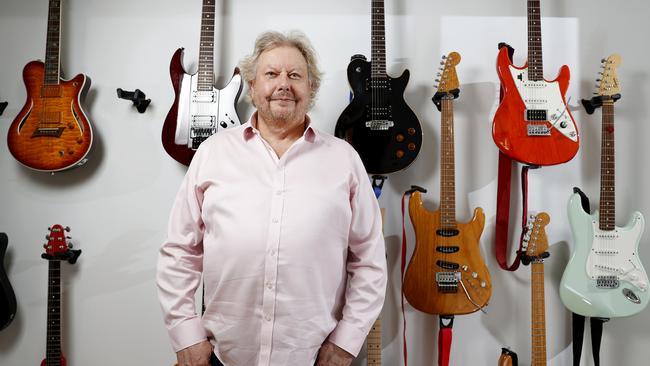Logistics software company WiseTech is on the hunt for sensible acquisitions
WiseTech has $500m in cash, no debt and revenue on the rise. Now it has an eye on landside logistics and even warehousing.

WiseTech Global is well placed to step up its acquisition strategy with some $500m in cash and no debt, the logistics software company’s chief Richard White says.
Speaking at the Citi investment conference in Sydney, Mr White said his company was in a strong position, particularly in the freight forwarding software market. Its CargoWise software was now used by major players such as DHL, FedEx, and UPS.
He said the company was looking for more “tuck-in” deals in the sector along the lines of software company Bolero, a top provider of electronic bills of loading which it bought in July.
But he said WiseTech, which reported a 25 per cent increase in revenue last financial year to $632m and an 80 per cent rise in net profit to $195m, was also capable of larger acquisitions.
Mr White said its immediate focus was expanding in the freight forwarding software area.
“We continue to see that (area) performing quite well,” he said. “I am expecting to see more major deals signed in that space in the next few years.”
He said the company had $500m in cash and an undrawn $225m debt facility supported by six banks. “We can use our ability to buy things,” he said.
But he said the company could afford to be discerning in its acquisitions.
“The money is not burning a hole in our pocket. We are not going to go out and buy something silly. We will focus on the opportunities which best fit us,” he said.

WiseTech has made 41 acquisitions since it was listed in 2016.
It bought two companies in the past financial year – Inobiz and Hazmatica, which it has integrated into the CargoWise ecosystem. Earlier deals included SISA in January 2020 and Containerchain in February 2019.
Mr White said the company had the potential to expand into a number of adjacent areas in addition to its main focus on freight forwarding.
“Land-side logistics is an obvious next step. After that it is warehousing,” he said.
Mr White said although there had been talk about the onset of a global downturn in trade, his customers were not seeing it in their current businesses.
He said there had been reports of a substantial downturn in container volumes going into the Port of Los Angeles but this had since been followed by a large upturn.
Mr White said the fall in cargo volumes coming into Los Angeles in September was as a result of demand pulled forward earlier in the year when people were worried they may have supply issues because of the Covid-19 pandemic.
He said his customers have had strong profits and had been expecting their margins to “contract back to normal by this time”. But he said it had not happened so far with DHL having just delivered a profit upgrade.
“At this point, none of our customers in the large space are seeing anything that looks like a business problem,” Mr White told the conference.




To join the conversation, please log in. Don't have an account? Register
Join the conversation, you are commenting as Logout